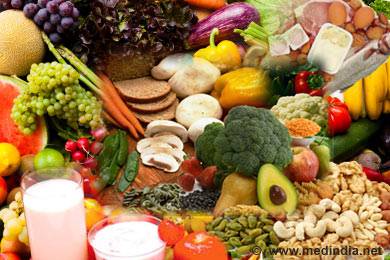Suffer from IBS? Here's the two things that could help you improve it
Monday, June 22, 2015

When it comes to the well-being of your gastrointestinal tract, there's a magic word you need to remember: fibre. If you're trying to treat or prevent constipation, lessen your chances of diverticulitis or diverticulosis or simply improve the symptoms of Irritable Bowel Syndrome, there's nothing like fibre.
More About Fibre
Essentially fibre is the part of the plant that is indigestible. Since fibre absorbs a great deal more than its weight in water it bulks up a person's stool which helps it to move faster through the colon and it is then easier to prevent straining and constipation.
So in the quest to get more fibre into your diet and improve digestion without feeling like you need to eat a cereal box, here's what you can try:
1. Stick to real fruits and veggies. Instead of gulping a pint of orange juice, eat oranges. Rather than strawberry jam on toast, opt for toast alongside a fresh cup of sliced berries. You'll easily meet your daily requirement of fibre (approximately 25 grams) if you eat nine daily servings of fruits and veg.
2. Half and half. If you're cooking rice or pasta, try half white with half whole-grain. Eventually, start decreasing the amount of white and increasing the whole grain until your body's getting only the high-fibre variety. Try doing the same with cereal.
3. Read labels. You can get bread with a gram of fibre per slice or bread with up to 4 grams of fibre per slice. Which would you go for?
4. Beans. Add a cup of tinned, rinsed chickpeas to salads to increase your fibre content. Or spread hummus on your roll instead of butter. Throw in a can of black beans when cooking chili and you'll soon increase your fibre content.
5. Grab some nuts. Just a handful of almonds will give you 3 grams of fibre.

But fibres only half the equation to calming the colon and improving digestion..... The other half is undoubtedly stress.
Professionals who have studied the gut understand it contains the equivalent of a second brain, referred to as the enteric nervous system. This system is said to contain more neurons than our spinal cord but fewer than the brain.
The same way your brain acts as a conductor for the rest of the body, the enteric nervous system communicates to your gut. So the way you feel emotionally becomes linked to how you feel physically.
This is why stress is such a common trigger for IBS, constipation, heartburn and diarrhoea. This is also why it's been found that mind/body techniques like relaxation training, hypnosis, stress management and cognitive therapy have proven highly effect for IBS. This is also why antidepressants are regularly prescribed for IBS.
We have receptors for serotonin as well as other mood-related chemicals in our guts. These are acted upon by antidepressants which gives further weight to the gut as a second brain philosophy. So if you tend to suffer from a stress related condition like IBS, it's time to think a little differently. While you may find it odd for your GP to prescribe antidepressants, don't say no right away. Such medications have proven to have a positive effect on bowel symptoms.
You could also join a relaxation training class at your local gym, community centre or college. While it can be difficult to reduce the stress in your life, you can start learning how to react so that you can better control digestive symptoms.

Lastly, start thinking about your gut holistically. If you're struggling to pass a bowel movement or develop sudden diarrhoea, pain or bloating, take a look at everything that's going on in your life. Are you spending all of your time indoors in front of a computer? Perhaps you're eating too much or binge drinking? Are you surviving on junk food? If yes, your gut could be crying out for help and it's time for you to listen.
